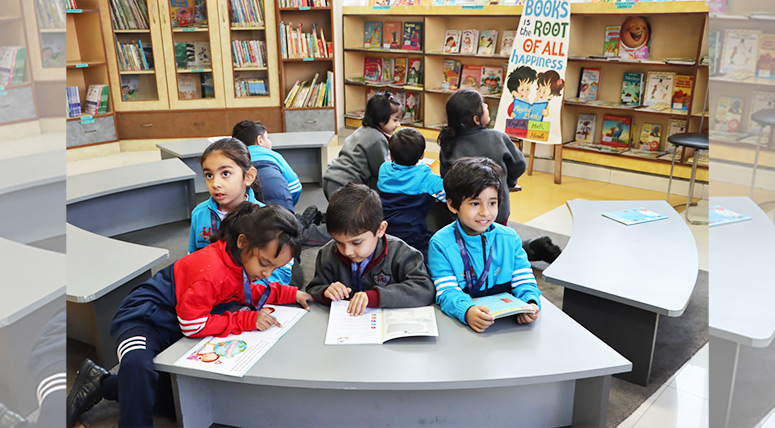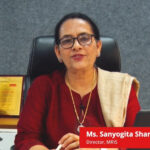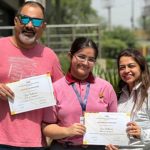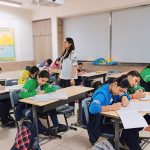The Wisdom Voyage Series- Episode 7
Making Early Years Enjoyable with the Best School in the City.
As eloquently expressed by Pablo Casals, “It is essential for a child to grasp their uniqueness, recognizing that throughout history, there has never been, and there never will be, another child identical to them.” Children are continuously immersed in the journey of learning, absorbing wisdom from their environment akin to sponges. Providing them with excellent early childhood education plays a crucial role, shaping their abilities and affecting everything from basic skills like using utensils to more intricate ones such as reading and social interaction. Children’s academic and extracurricular success is not just a function of their inherent skills, rather, it’s a lifelong journey of continuous learning and growth. Effective teaching-learning is crucial for these young children. In MRIS 21C, one of the best schools in Faridabad, we hold a strong conviction that children flourish in a cheerful and supportive setting that not only cultivates fundamental skills and capabilities but also emphasizes the vital aspects of socialization, cooperation, and forging connections. This comprehensive approach establishes the groundwork for a lifelong journey of learning and achievement.
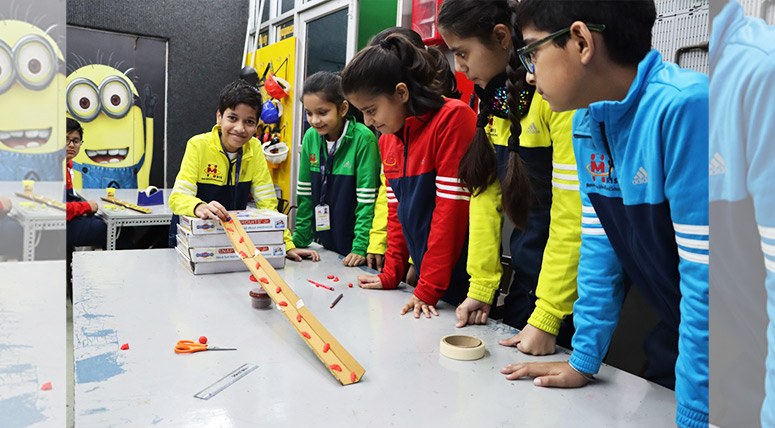 With this in mind, at MRIS 21C, a CBSE-affiliated school, we start early, so that our young students have a stronger basis for a pleasant journey of learning. Ours is a happy school, and in fact, we even greet each other with ‘Happy morning’ and ‘Happy afternoon’; the reason is simple…happy students in happy learning spaces make for a happy school. planning and preparation to make learning enjoyable for children, particularly in the Early Years; our passion for teaching is not so tough and for ensuring that our students get the best, drives us to give our best. Small students are good at participating in group activities, while following instructions, and concentrating on individual projects, At this point, playing and participating in activities is an extremely important aspect of a child’s life and learning. They contribute to the way children deal with experiences in their lives.
With this in mind, at MRIS 21C, a CBSE-affiliated school, we start early, so that our young students have a stronger basis for a pleasant journey of learning. Ours is a happy school, and in fact, we even greet each other with ‘Happy morning’ and ‘Happy afternoon’; the reason is simple…happy students in happy learning spaces make for a happy school. planning and preparation to make learning enjoyable for children, particularly in the Early Years; our passion for teaching is not so tough and for ensuring that our students get the best, drives us to give our best. Small students are good at participating in group activities, while following instructions, and concentrating on individual projects, At this point, playing and participating in activities is an extremely important aspect of a child’s life and learning. They contribute to the way children deal with experiences in their lives.
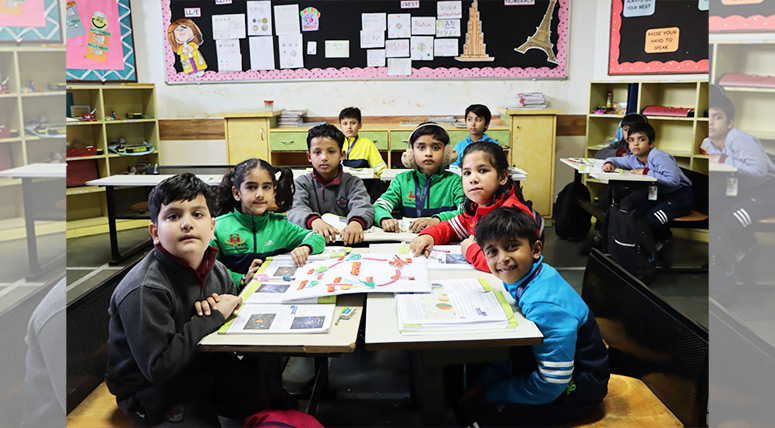
Therefore, at MRIS 21-C, a top international school in Faridabad, we believe in giving a joyous learning experience to students. This is made possible by creating a play-based learning environment and making the learning process fun to ensure the holistic development of each child. Our Early Years classrooms provide a safe place for parents and guardians to make us their guardians when they go to work and ease the transition from home to school with qualified, experienced and well-trained teachers, who, with the aid of age-appropriate resources and equipment, work towards making learning enjoyable. Children’s minds are engaged, and they participate in the activity for a longer period of time when there is a purposeful effort towards making learning a worthy experience. The child’s interest and focus may be maintained while learning is made interesting by using colors, textures, and even music. The early stages of childhood education empower children to cultivate the intellectual, emotional, and social competencies essential for success both within and beyond their school years. Children derive advantages from honing these skills in a safe learning environment, whether it be within the confines of a classroom or in outdoor settings.

One of the many such experiences that I would like to share with you is the EduTrip we took with students to a clothes store that helped our students enhance their understanding of different fabrics, patterns, and sizes, along with how to use money wisely. The way a concept is approached over time, particularly in early childhood, has undergone a significant transformation. Small classrooms with crowded benches have been replaced by more open spaces with little furniture and plenty of opportunity for children to explore while they engage in their activities. Students have the flexibility to move around, and have minimal restrictions, however, boundaries are set and clearly established so that students themselves become responsible for their actions. They are able to form ties not just with other students but additionally with many disciplines due to blended and interactive teaching methods. Additionally, I also try to incorporate real-life, practical experiences that relate to the ongoing topics. Nature walk to explain the parts of a plant through practical visuals and experiences is one such example. Learning happens even without the realization of it since they are so engaged in the activity. The emphasis on education has also transformed from traditional methods to the 360-degrees development of children that emphasizes giving students the opportunity to engage, speak out, think, solve issues, and develop their ideas while also teaching them life skills. The idea is to create thinking beings. For instance, I teach our young kindergarteners about the importance of avoiding the usage of plastics, cleanliness of our surroundings, etc., so that they are mindful from the very beginning. It is heartwarming to see that the children voluntarily share with each other and take the initiative to tidy the classroom post activities.
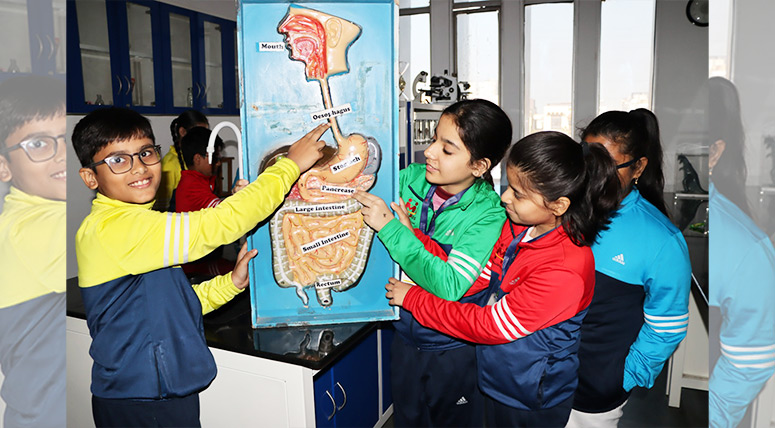
We, at MRIS 21C, aim to make early childhood learning engaging and joyful. Children from the top schools in India may embrace the difficulties that the learning process presents and relish becoming active learners once they realize that learning is fun and rewarding. Little ones have limited attention spans; they frequently struggle while focuings for longer periods of time in their eagerness to imbibe new things. I make sure to encourage my students to encounter new settings, connections, and experiences while developing their concentration. Due to their constant exposure to technology, children’s needs have also changed. They now require time to process what they see and constant assistance with their questions. While children do have a lot of questions, parents may not always have the time to address them due to other commitments. There is no other youngster to play with or engage with because families these days are smaller and have just one child. Grandparents are not there in nuclear households to narrate tales or painstakingly explain concepts to the children. Hence, our primary focus is to take into account children’s emotional and social development mostly because of these causes. Having said that, I would like to mention here that our school organizes events from time to time where the family is invited, such as Grandparents’ Day and Mother’s Day, so that the connection between the three stakeholders strengthens. Playing games together, sharing heartwarming stories or singing melodies with their grandchildren in the classroom can fill any grandparents’ heart with so much joy, as they relive their childhood through their grandchildren.
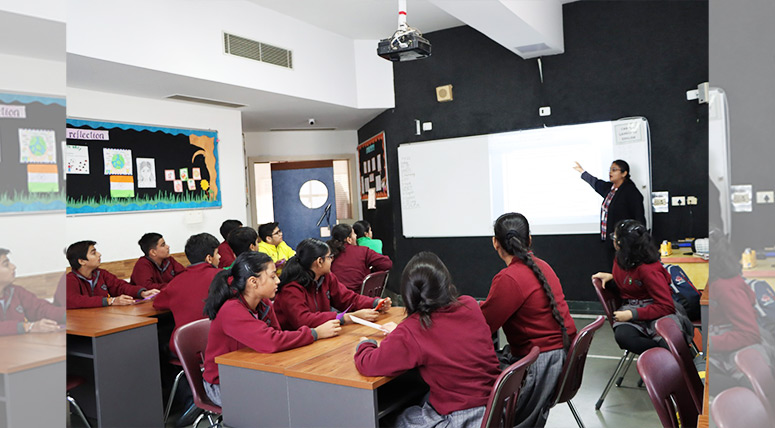
Recognizing the individuality of each child, their diverse backgrounds, experiences, preferences, and varying learning speeds is crucial. This understanding plays a pivotal role in fostering their proficiency in various educational domains like Numeracy, English, or other subjects. Acknowledging that every child possesses unique qualities, boundless potential, and a natural enthusiasm for learning, and cannot be confined to a rigid teaching approach contributes significantly to enhancing the effectiveness of education. The learning environment at MRIS 21C, the top school in Faridabad, helps children become better human beings and individuals who will one day grow up to be responsible members of society.
Authored by: Ms. Anjani Kumra, Pre-Primary Teacher, Manav Rachna International School, 21C, Faridabad

